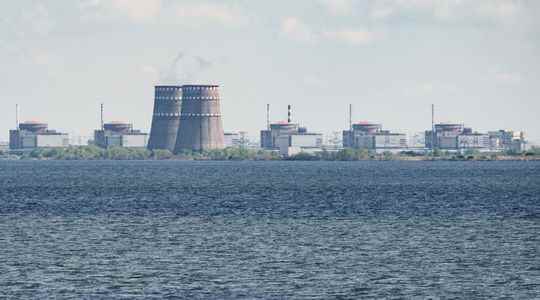International Atomic Energy Agency (IAEA) chief Rafael Grossi said the weekend strikes – “a good dozen” – were “absolutely deliberate, targeted”, without attributing responsibility to Russian forces or Ukrainians, – and judged the situation “extremely serious”, in a interview with the French channel BFMTV. On Sunday, November 20, Russia and Ukraine again accused each other of having bombed the Zaporijjia nuclear power plant, the largest in Europe, located in southern Ukraine and militarily occupied by the Russian army.
The IAEA, which has two inspectors on site, intends to carry out an “inventory” on Monday morning “very early”. The inspectors could not go out on Sunday because the situation was too dangerous, according to Rafael Grossi.
- Ukraine: IAEA chief denounces “targeted” shots at Zaporizhia nuclear power plant
The head of the International Atomic Energy Agency (IAEA) on Sunday denounced “deliberate and targeted” firing against the Zaporijjia nuclear power plant, the largest in Europe, calling for “stop this madness”. Russia and Ukraine again accused each other on Sunday of having bombed this nuclear power plant located in southern Ukraine and militarily occupied by the Russian army.
“Explosions have taken place on the site of this major nuclear power plant, which is completely unacceptable,” said Rafael Grossi, in an interview with the French channel BFMTV. “Whoever it is, this needs to stop immediately,” urged the IAEA chief, insisting, “People doing this know where they’re hitting. It’s absolutely deliberate, targeted.” For several months, Moscow and kyiv have accused each other of bombardments on the site, close to the front line.
The IAEA did not find an increase in radiation. “Radiation levels at the site remained normal and no casualties were reported. The power plant’s external power supply, which was interrupted several times during the conflict, was also unaffected,” said Rafael Grossi, in a press release published Sunday evening.
- Conference in Paris on support for Moldova, victim of the war in Ukraine
Paris is hosting an international conference in support of Moldova on Monday with the immediate objective of providing emergency aid to get through the winter while accompanying the country on its way to joining the European Union. Moldova, a small country of 2.6 million inhabitants who has been a candidate since the end of June to join the EU, is close to Ukraine. And it suffered the full brunt of the consequences of the war, particularly in terms of energy, when the Russian company Gazprom halved its gas exports to Chisinau.
The “International Support Platform for Moldova” was launched on the initiative of Germany, France and Romania. Two editions have already taken place, the first in Berlin in March, the second in Bucharest in July. But this third meeting is of particular importance with the onset of winter and “Russian gas blackmail”, summarized a French diplomatic source. In addition to the lack of Russian gas supplies, Moldova is facing power cuts linked to Russian missile strikes on Ukrainian energy infrastructure.
- Ukraine rejects Moscow’s accusations of ‘executing’ Russian prisoners
Ukraine’s human rights chief on Sunday dismissed Moscow’s accusations over a case of the “execution” of Russian prisoners of war, arguing that in the incident filmed Ukrainian soldiers defended themselves against Russians who feigned surrender. Ombudsman Dmytro Lubynets said the “video clips” presented by Moscow as evidence that kyiv had executed Russian prisoners of war actually showed that the Russian soldiers “using feigned surrender”, had “committed a war crime in opening fire on the Ukrainian armed forces”.
The Russian soldiers killed in this incident “cannot therefore be considered as prisoners of war”, he added on Telegram. “Those who want to use the protection of international law to kill must be punished,” he said. Russia on Friday accused Ukraine of having executed more than ten of its soldiers who had laid down their arms, denouncing a “war crime”, on the basis of videos posted on social networks.
- According to Zelensky, shelling continues in Donestk
Ukrainian President Volodymyr Zelensky said on Sunday evening that Russian bombardments were continuing in the Donetsk region in the east of the country. “In the Luhansk region, we are advancing slowly while fighting, he said. So far, there have been nearly 400 artillery fires in the East since the beginning of the day.” The head of state added that “although there are fewer attacks today due to deteriorating weather conditions, the number of Russian bombing occasions unfortunately remains extremely high.”
